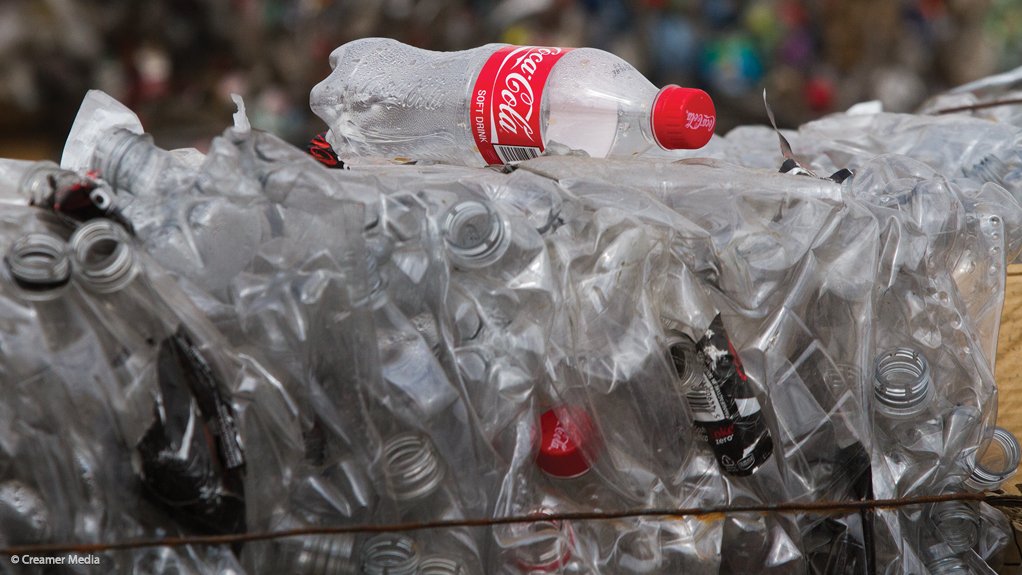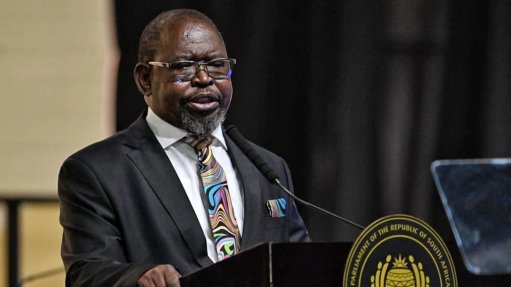Project Up recyclate recordkeeping system bears fruit for whole recycling sector
Polyethylene Terephthalate Recycling Company (Petco) has announced the findings of a pilot project – Project Up, which uses blockchain to digitise and record transactions of recyclable materials between waste pickers and buy-back centres.
Project Up uses BanQu blockchain technology to build a national digital record of recyclables, enabling buy-back centres to digitally track the sorts of materials coming in and the value of those materials to their businesses, while waste pickers have digital proof of the revenue they receive for their materials.
Petco says the project has already yielded positive results in just over a year, having helped grassroots businesses to integrate into the formalised waste recycling sector and increasing the volume of recyclable plastics and other materials received by buy-back centres.
Project Up, funded by the Coca-Cola Foundation, is building a national digital record of recyclables and helping to maintain trading volumes through increased business insight.
Buy-back centres and waste pickers can offer producers statistical proof of the sorts of products that are easily absorbed into the circular economy and those that are not.
Petco vice-chairperson and Coca-Cola sustainability director for Africa David Drew says the BanQu system is providing key insights into the waste economy.
He explains that, with over R10-million worth of transactions, representing over 4 000 t of recyclables, Project Up is reaching a point at which data is becoming sufficient to provide a credible basis for analysis and, ultimately, will help grow the informal waste economy.
He stresses the importance of understanding how factors such as price and demand affect collection.
For example, the recycling industry has long known that bottles made of clear or blue polyethylene terephthalate (PET) fetches a higher price than green or amber PET and translates to a lower collection rate for the latter.
BanQu data clearly shows the impact of this price differential on collection rates.
“The BanQu data shows that, while clear or blue PET is estimated to represent around 85% of the beverage bottle market, it represents 92% of the post-consumer PET collected and traded on BanQu. This suggests that the price premium translates into a higher collection rate for clear bottles versus green and amber PET bottles.”
While price was a key driver of collection rates, Drew points out that it is not the only relevant factor.
“The BanQu data also consistently shows that K4 cardboard represents the highest fraction of recyclables traded in terms of both volume (46%) and value (32%), which are both higher than cardboard’s approximate share of the packaging market (26%).
“This is interesting because the pricing of K4 is generally very similar to that of amber PET and significantly less than clear PET.”
In contrast, Drew highlights, aluminium beverage cans are typically the most valuable recyclable traded but represent only about 1% of volume and 3% of value.
“As such, we can conclude that price is not the only factor driving collection, with factors like availability, tradability and consistency in demand for materials playing an important role in determining what is collected and what is not.”
While improved data is a major benefit of the project, another benefit has been the improved working relationships between buy-back centres and waste pickers.
Buy-back centre Hendrina Recycling CE Refilwe Ramadikela notes that many waste picker clients now prefer to work exclusively with her centre.
“Because I can identify if a regular client has been bringing less and less material, I can reach out to them to find out what has happened,” she explains.
A Gauteng-based buy-back centre, Sakhikamva Projects, meanwhile, had been trying to move away from a manual system when BanQu “came to the rescue”, states owner Zolani Fololo.
“We were desperately in need of a digital system like this, which gives you detailed daily reports and shows you everything you need to know. We grabbed it with both hands and it fitted like a glove,” he mentioned, lauding how easy it was to start using the technology.
Fololo believes his business to now be more streamlined, more enabling of loyalty and with a faster collection rate.
According to Petco CEO Cheri Scholtz, the data coming out of Project Up allows for a better understanding and ability to support the informal collection value chain – responsible for an estimated 60% of all PET plastic, aluminium can and paper collection nationally.
“Project Up has enabled us to bring buy-back centres and waste pickers into a more integrated and formalised network that ensures transparency of pricing and traceability of the materials that are bought and sold.
“It’s another step we are taking in helping to ensure more equitable earnings for the vulnerable informal sector. By November this year, organisations such as Petco will be mandated to compensate waste pickers for their collection services and Project Up has assisted us in preparing for that.”
Scholtz adds that the emerging data will help identify bottlenecks in sourcing feedstock for recyclers and in delivering more targeted interventions for stimulating the collection and recycling of PET.
BanQu founder and CEO Ashish Gadnis comments that prior to using the technology, waste pickers were completely disconnected from the formal sector.
“When they sell their material to an independent buy-back centre, the waste picker would, at most, receive a paper receipt for the material they had sold – their only record proving their existence in the recycle value chain.
“With BanQu, waste pickers, buy-back centres and organisations such as Petco are connected in an integrated network, allowing for transparency and traceability of all materials bought and sold between two connected parties in the value chain.”
Gadnis concludes that this also provides increased visibility to ensure waste pickers are being paid in an equitable manner.
Article Enquiry
Email Article
Save Article
Feedback
To advertise email advertising@creamermedia.co.za or click here
Announcements
What's On
Subscribe to improve your user experience...
Option 1 (equivalent of R125 a month):
Receive a weekly copy of Creamer Media's Engineering News & Mining Weekly magazine
(print copy for those in South Africa and e-magazine for those outside of South Africa)
Receive daily email newsletters
Access to full search results
Access archive of magazine back copies
Access to Projects in Progress
Access to ONE Research Report of your choice in PDF format
Option 2 (equivalent of R375 a month):
All benefits from Option 1
PLUS
Access to Creamer Media's Research Channel Africa for ALL Research Reports, in PDF format, on various industrial and mining sectors
including Electricity; Water; Energy Transition; Hydrogen; Roads, Rail and Ports; Coal; Gold; Platinum; Battery Metals; etc.
Already a subscriber?
Forgotten your password?
Receive weekly copy of Creamer Media's Engineering News & Mining Weekly magazine (print copy for those in South Africa and e-magazine for those outside of South Africa)
➕
Recieve daily email newsletters
➕
Access to full search results
➕
Access archive of magazine back copies
➕
Access to Projects in Progress
➕
Access to ONE Research Report of your choice in PDF format
RESEARCH CHANNEL AFRICA
R4500 (equivalent of R375 a month)
SUBSCRIBEAll benefits from Option 1
➕
Access to Creamer Media's Research Channel Africa for ALL Research Reports on various industrial and mining sectors, in PDF format, including on:
Electricity
➕
Water
➕
Energy Transition
➕
Hydrogen
➕
Roads, Rail and Ports
➕
Coal
➕
Gold
➕
Platinum
➕
Battery Metals
➕
etc.
Receive all benefits from Option 1 or Option 2 delivered to numerous people at your company
➕
Multiple User names and Passwords for simultaneous log-ins
➕
Intranet integration access to all in your organisation





















